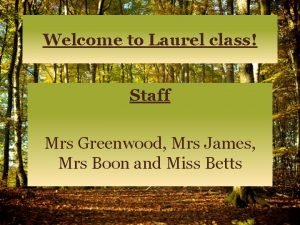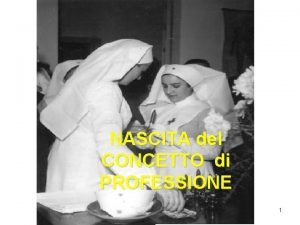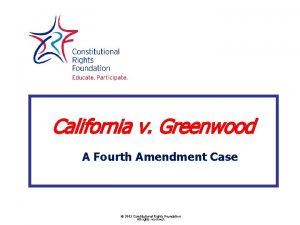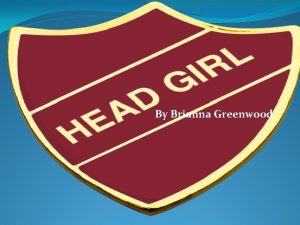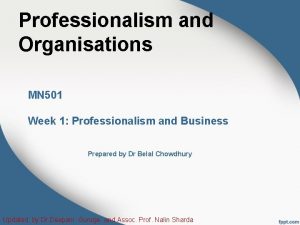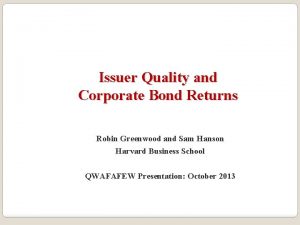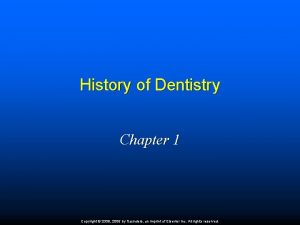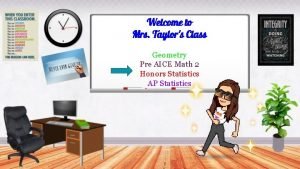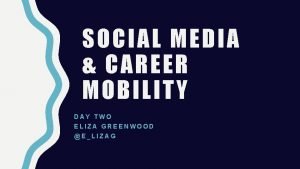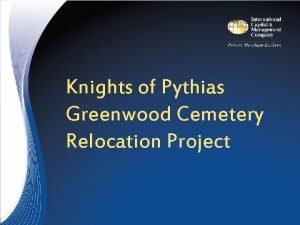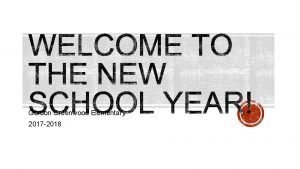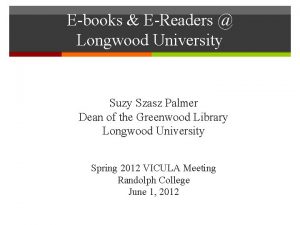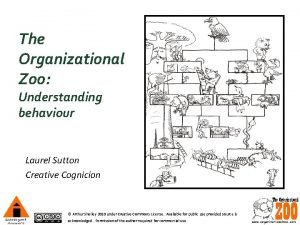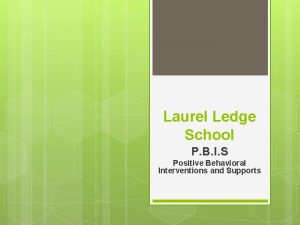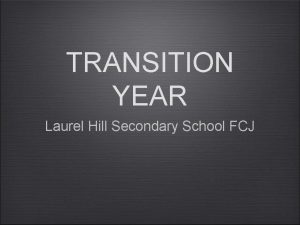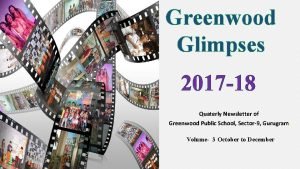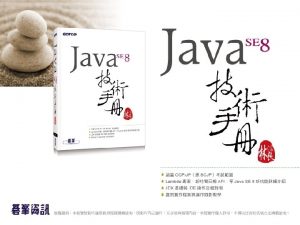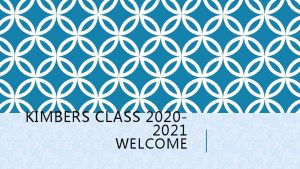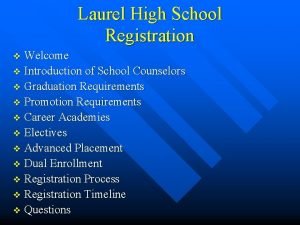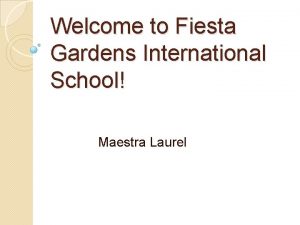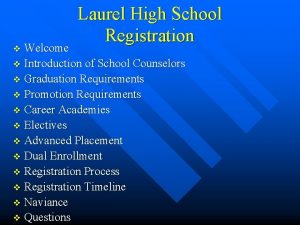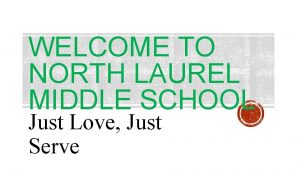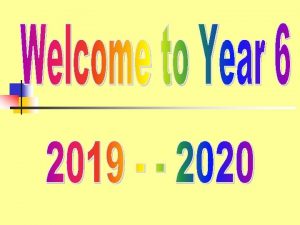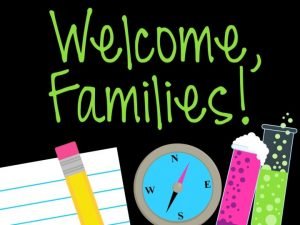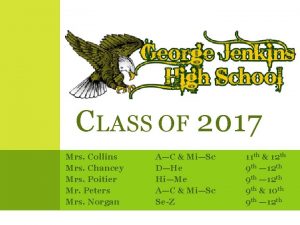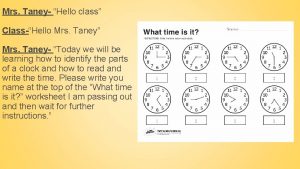Welcome to Laurel class Staff Mrs Greenwood Mrs



















- Slides: 19

Welcome to Laurel class! Staff Mrs Greenwood, Mrs James, Mrs Boon and Miss Betts

Routines in Laurel Class • The children will be met by their teacher in the playground and will come into school at 8. 50 am through the Laurel playground gate. • This will be locked behind us. If you are late please take your child to the school office. • PE days are every Tuesday & Thursday. The children must have full P. E kits in school which are labelled with their name. • Each day we start with a phonics session. • Our library day is Friday. Please ensure that library books are brought to school in exchange for a wonderful new book!

Homework • Year 1 maths homework will be handed out on Wednesdays and due in on the following Monday. Children will be shown where to hand in their homework in Laurel class. The box will be clearly labelled “ Homework ”. • Spellings/phonics homework will be handed out on Tuesdays. The children will be tested the following Tuesday. Please help your child practise the spellings each week and use the words in a sentence to help contextualise new vocabulary. • Please ensure that your child reads every day allowing time to talk about the story and encouraging your child to re-tell the story using their own words. Comprehension of texts is incredibly important! • Reading books should be handed in every Monday and Thursday in exchange for a new book. Please ensure reading records are signed each week. Remember that for every time your child reads twenty five times they can choose a new book to take home!

A slide for the diary! • Mondays – Hand in reading books and reading records. Maths homework due in –if set • Tuesdays – New spellings given in spelling books. - Spelling books in school for a spelling test • Wednesdays – Maths homework (set when necessary) • Thursday Hand in reading books and reading records. • Fridays – Hand in library book in exchange for a new one. • Everyday – Read, read!

Curriculum - Reception In the Early Years Foundation Stage children learn best when they experience learning first hand, through meaningful interactions with others, through physical activity and through play. The Early Years curriculum emphasises three prime areas of learning: Personal, social and emotional Communication and Language Physical The curriculum breaks down into four further areas of learning: Literacy Mathematics Understanding the world Expressive arts and design

Continued… Teaching in Reception is organised through a range of approaches and provides a balance of child initiated and adult-led activities: • Planned focused activities where adults work with a small group of children at a time. Teachers will differentiate the activity to meet the needs of every child participating. • Small group teaching of early reading and writing through a phonics based programme called Phonics play- based on Letters and Sounds Government programme. • Whole class teaching for short periods of time such as shared story-time, direct teaching (for example of maths), songs and rhymes, discussions and sharing work. • Opportunities for teachers to work alongside children as they develop their own interests in particular areas of the curriculum.

Literacy • We use the teaching method, “Talk for Writing” to help children develop their skills in talking about and writing stories. • Talk for Writing starts with enjoying and sharing and acting out stories. Our texts used can be seen in the curriculum planning section on the website • Through regular reading, we want children to build up an extensive and rich vocabulary for use in their own writing. • Each half term we focus on a particular story and genre of text. The children will hear the story several times and as a class we will explore any new vocabulary.

Phonics Reception Phonics During our daily phonics sessions we will be learning letter sounds. We will begin to learn the initial sounds and practise these in a variety of ways, using paper, pen, whiteboards, shaving foam, paint, play dough etc. The children will quickly learn to blend sounds to read simple words (eg p -a-n is pan) and to segment sounds to spell simple sounds. http: //www. letters-and-sounds. com/ Year 1 Phonics Our daily phonics sessions revisit Phase 3 and will be moving quickly through Phase 4 to Phase 5 phonics. The Phonics screening test in June 2019. Please look at Laurel Class website for more information on the different Phonic Phases!

P. E We use the hall and outdoor area for physical activities. Lessons will involve children finding their own space, listening to instructions, working as a team and learning new skills. The P. E lessons are delivered by coach Mr Ball and also Mrs Greenwood.

Maths – Reception • We will be focusing on numbers to 20, recognising them, writing them, counting sets and ordering them. • We will be focusing on one, two or three numbers a week and really exploring the numbers in depth. • We will look at different ways of making that number and numbers that add together to give that number as a total. • Along with number we will begin to explore shape, pattern and measuring.

Maths – Year 1 We will be using the Maths-No Problem scheme, based upon the maths mastery approach. • This term we will focus on counting, ordering and comparing numbers 20 and beyond, by their numerals and in written form. • We will be practicing counting on and back through number stories for addition and subtraction. • Later in the term we will focus on identifying, naming and sorting 2 D shapes according to their different properties.

Personal, Social and Emotional Development • As the children enter this new social environment they are encouraged to make new friends, to share and to take turns. • The children will be encouraged to become independent learners in the classroom and this includes becoming familiar with classroom routines. • We look at the similarities and differences among us and the wonderful qualities we can share together. • We will go on to learn about our likes and dislikes as well as our senses and feelings.

Art and Design • Creative opportunities are available to children throughout the day across the curriculum. Some of these opportunities include: painting, drawing, model-making, role play, imaginary play and music-making. • Some specific skills will be taught during our “Topic” sessions in the afternoons. Most of the creative activities will be linked to our topic work.

Communication and Language • The children will be developing their speaking and listening skills through daily class discussions using their learning partners. • Our role play area will also provide opportunities to listen and respond to others for Reception children.

Science • The children will be learning about everyday materials such as rubber, plastic, wax, paper, wood, metal etc. • We will learn to differentiate different materials. • We will also explore new vocabulary to help us describe the properties of different materials.

Attendance and Lateness • School starts at 8. 50 am and the register is taken down by 9. 00 am. Each morning we begin with our phonics session, so it is important that your child arrives promptly to school so they are ready to learn. • If your child is sick please call the office or leave a message by 8. 30 am. • Children need to be collected at 3. 10 pm. If your child is being collected by someone different, please inform the school office and teacher in writing if possible- or by telephone. We can only release your child to a known authorised person.

Behaviour Policy • Positive behaviour is rewarded by certificates, class treats and Team points. • We follow the ‘Rules’ of our school. • We have written a fantastic Laurel ‘Class Charter’ that the children have put together and agreed to follow.

What to do if you have a concern • Speak informally to the class teacher on the play ground (either before or after school). • Make an appointment with the class teacher. • Speak through concerns at parents evening. • Make an appointment to see the Key Stage leader, Deputy Head, SENCO or Head.

Children are the world’s most valuable resource and its best hope for the future. It is a privilege to teach your children. Thank you!
 Mrs. greenwood
Mrs. greenwood 5 attributi di greenwood
5 attributi di greenwood California vs greenwood
California vs greenwood Brianna greenwood
Brianna greenwood Ernest greenwood attributes of a profession
Ernest greenwood attributes of a profession Robin greenwood harvard
Robin greenwood harvard John greenwood dentist
John greenwood dentist Plusportals greenwood
Plusportals greenwood Eliza greenwood
Eliza greenwood Knights of pythias greenwood cemetery
Knights of pythias greenwood cemetery Craig greenwood liverpool
Craig greenwood liverpool Gordon greenwood elementary
Gordon greenwood elementary Greenwood library longwood university
Greenwood library longwood university Coronado de laurel
Coronado de laurel Pnp badge symbol and meaning
Pnp badge symbol and meaning Zoo organizational structure
Zoo organizational structure Laurel ledge school
Laurel ledge school Laurel park elementary school calendar
Laurel park elementary school calendar Laurel hill secondary school
Laurel hill secondary school Stanley laurel
Stanley laurel
